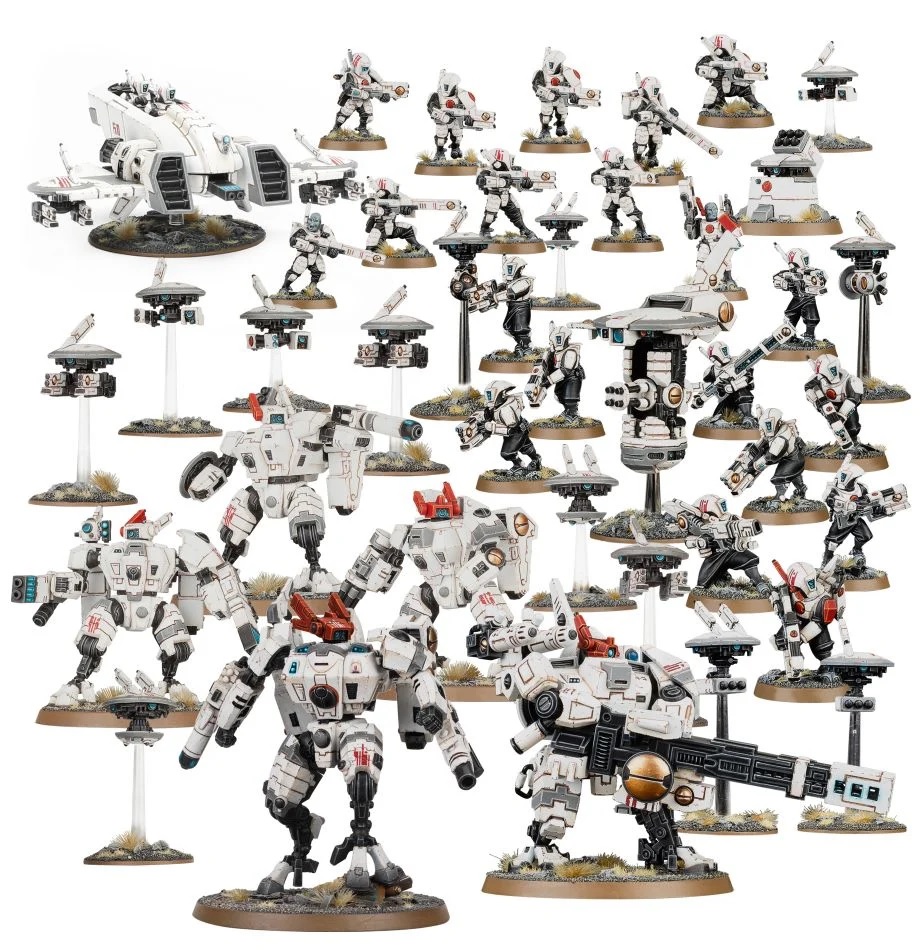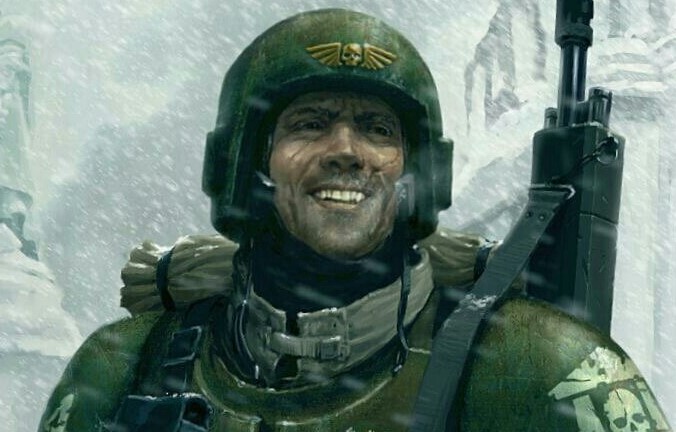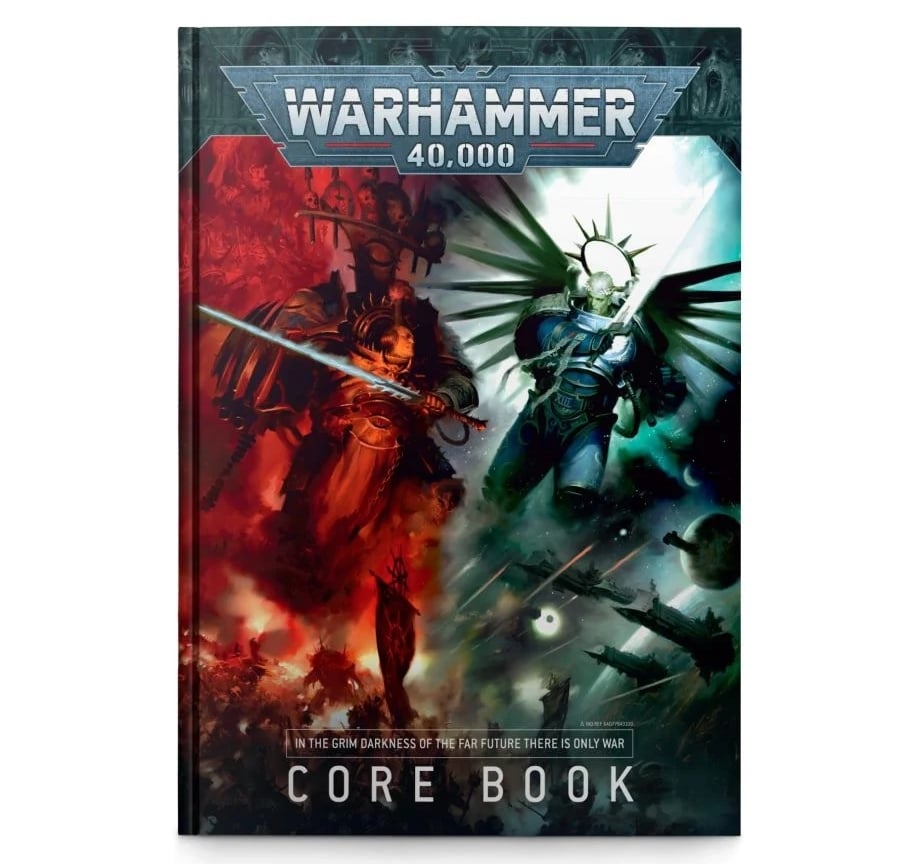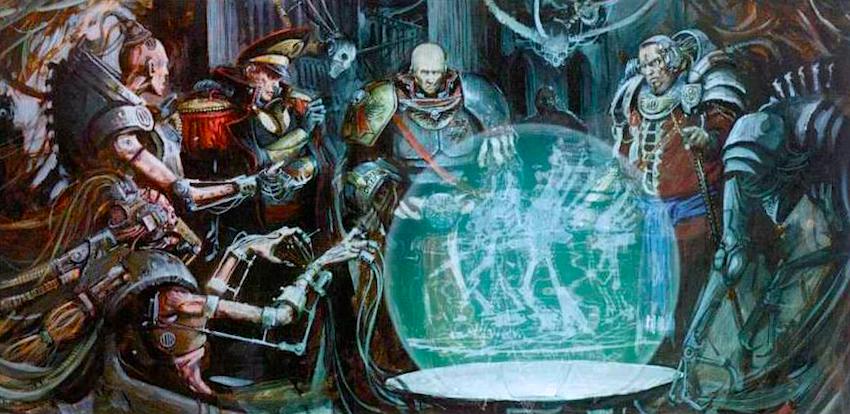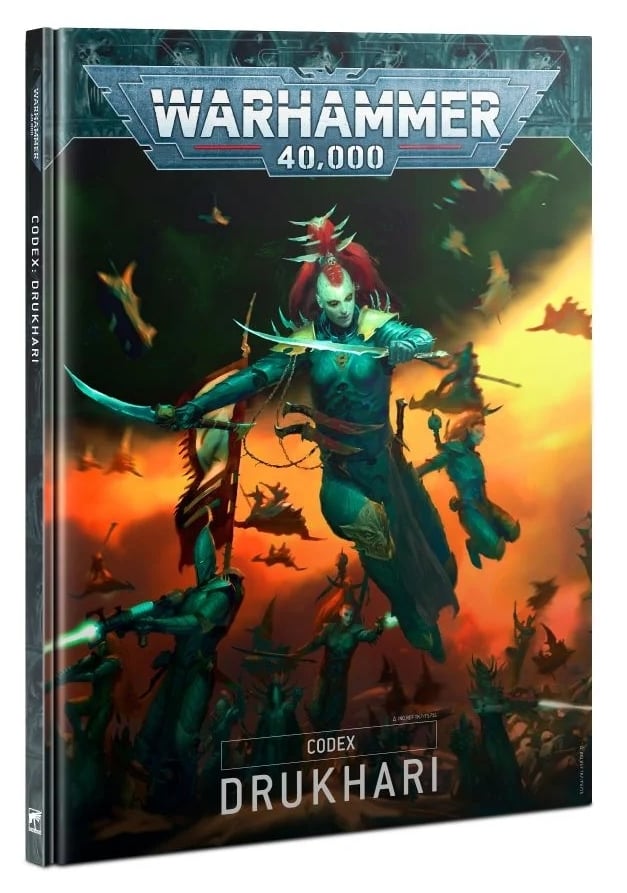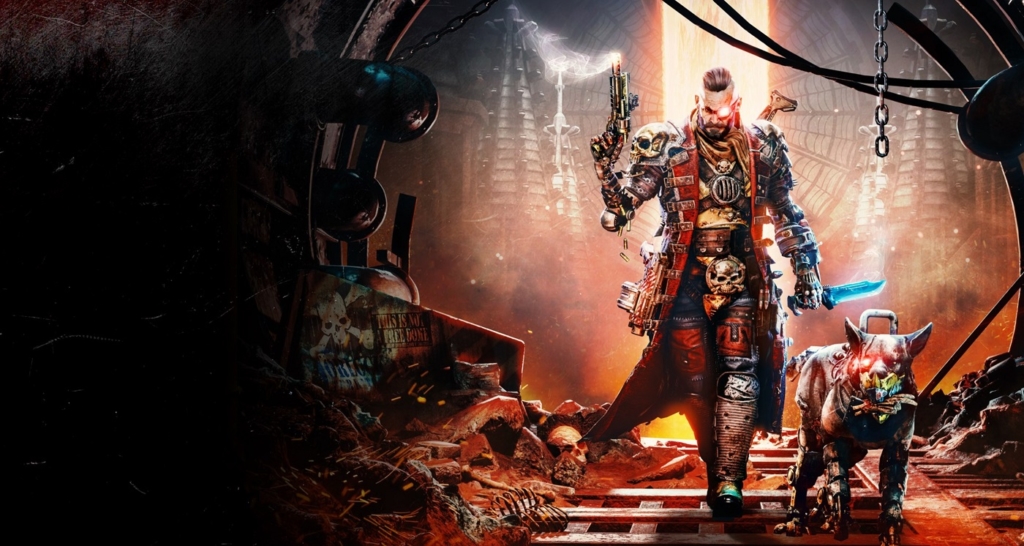Warhammer 40K: Getting the Most From Bad Factions
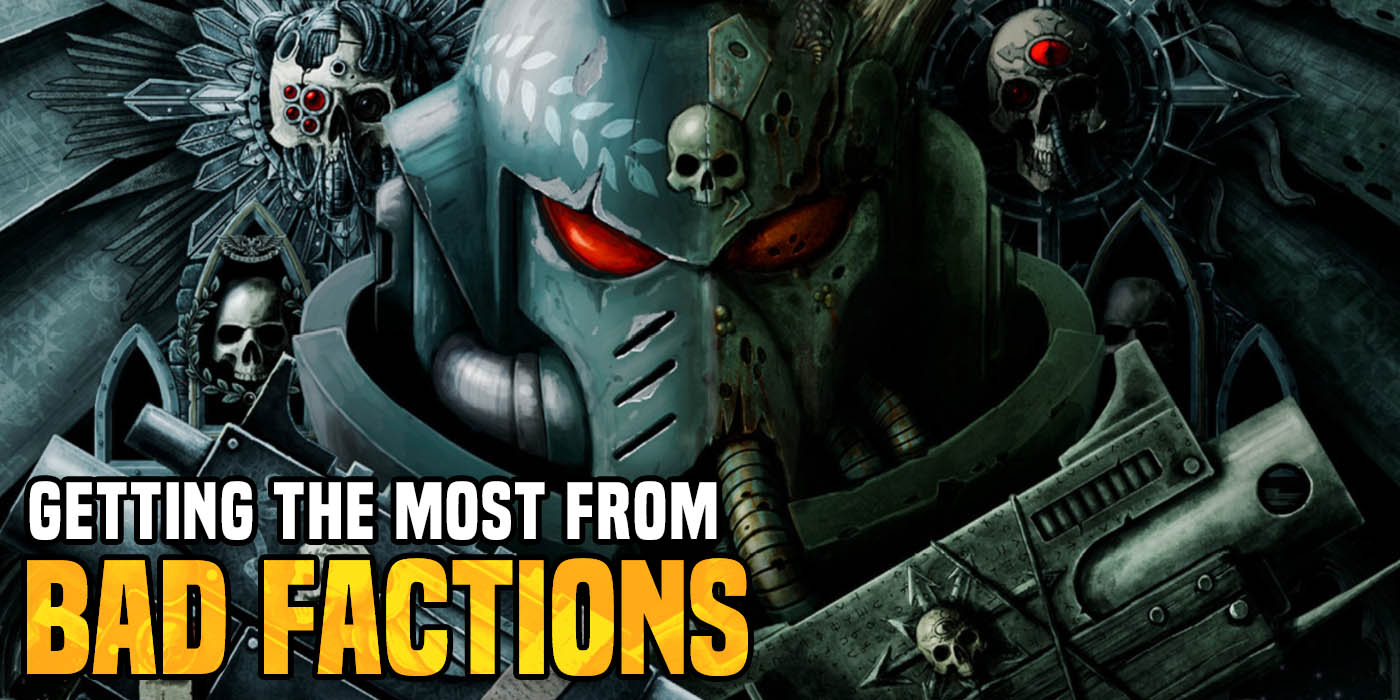

Today we talk about getting the most out of your underperforming 40k faction.
By Rhys Jenkins
This article is going to be a little different from my usual writing. I want to talk about how to enjoy the hobby with a poorly-performing army.
There’s a lot to say about this subject and there are lots of different places to go, but I want to begin with an obvious point. The game changes. With enough time, strong factions will waiver and weak factions will become powerful. In fact, a quotation from the original T’au codex puts it best: “The one constant in the universe is change. The wise adapt”.
However, the fact that our outgunned and outmatched minis will be more playable in the future isn’t always particularly helpful when we’re losing games right now. And there’s no doubt that it’s tricky to project oneself into the future to a moment when those models will actually do something interesting on the tabletop. That which is occurring at this moment, there or thereabouts, is a very powerful motivator.
What To Do When Your Army Isn’t the Best
How, then, do we deal with this? Honestly, I don’t think that there is one answer to which we can point in order to better enjoy the hobby when things aren’t going our way. But I will offer a couple of ideas that I find helpful when it comes to this problem.
First of All, Learn to Lose with Grace and Good Cheer
Look, no one likes to lose a game of 40k. In fact, no one likes to lose anything. This much is obvious. And I’m not going to talk about how losing is an opportunity to learn and improve, even though it is and you should, but learning to lose with grace and good cheer is a good strategy for life.
There are all sorts of clichés on the subject on failure, and I think that, roughly speaking, there’s probably a lot of truth in most of them. In order to build a really good product, you’ve got to fail at building a really good product quite a lot. That generally sums up the cliched wisdom on the subject of failure: fail until you succeed.
Does this apply to 40k? I would argue that it does. In fact, I would argue that it’s one of the best ways to actually get really good at the game. Take a bad faction and play with it. You’ll lose a whole load of games. You might get the odd win on occasion, but you’ll do a lot of losing.
And if you do so with grace and good cheer, you’re far more likely to learn something that will improve your game the next time.But more importantly, you’re much more likely to be someone with whom other people want to play 40k.
Let me put it like this: be the opposite of that guy. Where that guy is sullen and frustrated when he loses, be open and engaging. Where that guy gloats and brags when he wins, be humble and magnanimous.
Again, we’re getting pretty close to the territory of life advice, but I would absolutely stand by it. I firmly believe that how one does one thing is how one does everything; I think there’s going to be a lot of crossover between graciously losing a game of 40k and having the quality of grace more generally in oneself.
That, then, is the first idea: learn to lose with grace and good cheer.
The Second Idea: Study the Game
Honestly, this is just good advice if you want to be good at any particularly game — not just 40k. But it certainly applies if you’re playing a low-tier faction and you’re trying to get every advantage possible in your games of 40k.
What do I mean by this? If you’re really interested in playing 40k well, learn how the best players play the game and try to implement their strategies into your game. Fortunately, this is pretty easy.
Not only are there many sources of battle reports and tactics articles throughout the internet, but there are specific services dedicated to improving people’s performance on the tabletop.
Now, do you have to get a coaching session with the Skari or Nick Nanavati in order to be great at 40k? Absolutely not. But you could certainly check out the Skared Cast or the Art of War. You could make a note of which secondary objectives come up most often. You could keep an eye on how many units take mid-board objectives early in the game. You get the idea.
And here’s the thing about studying 40k when you’re playing a bad faction. When you’re faction becomes good — and it will — you’ll be in much better place to take advantage of it.
If, for example, you know that you need models on objectives in order to remain competitive on the primary — a profound 40k insight, I know — and your Fire Warriors are often swept off objectives with little more than a brief swing of a Bladeguard’s sword, when Fire Warriors gain an Engagement Range-only 4+ invulnerable save and the ability to shoot in combat at -2 AP, you’re going to be in a good place to take advantage. All right. We T’au players can dream. But you get the idea.
Putting It Into Practice
I think that the new Drukhari is one of the strongest factions in the game, and, as we continue to open up here in the UK, I’m going to soon find out exactly how strong the faction is. My most frequent opponent plays Drukhari, and let’s just say that I’m not looking forward to dealing with all those shiny new datasheets.
But I’m going to do my best to take my own advice. Generally speaking, I’m a pretty cheerful dude, and I’m going to endeavour to maintain that cheer even if things go pear-shaped by turn two.
And remember, Frontline Gaming sells gaming products at a discount, every day in their webcart!

